‘Squid Game’ Explained: A Detailed Analysis of the Survival Drama
Squid Game was one of 2021’s hottest shows. Take a deep dive to find out why it’s great, what it’s really about, and what inspired its games.
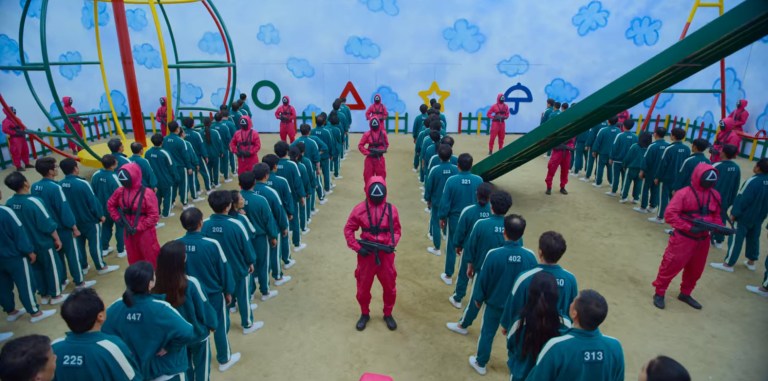
Table of Contents
Squid Game quickly became one of the most talked-about shows when the nine-part series was released on Netflix in September of 2021. In the weeks following its release, social media exploded with posts about Squid Game including enthusiastic reactions and plenty of TikTok memes and challenges. The show’s popularity led to it topping Netflix’s streaming charts around the world and becoming the first South Korean series to reach #1 in the United States.
Squid Game is another landmark achievement in South Korean horror cinema and television’s rise to global prominence, but what is the fuss all about? Here we’ll analyze and review the most interesting aspects of Squid Game.
Review/Summary
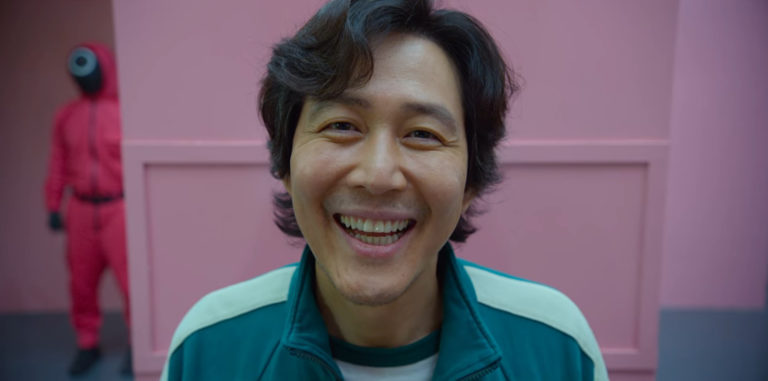
The main character in Squid Game is Seong Gi-hun, a divorced father in crippling debt who may be about to lose contact with his daughter if he can’t get his life together. One day, a mysterious man offers Gi-hun a fortune just for playing games for a few days. Though skeptical, Gi-hun doesn’t see any other option than to accept. After what amounts to kidnapping, Gi-hun finds himself in an unknown location competing against hundreds of other people in a series of challenges inspired by children’s games. The prize money for the eventual winner is the equivalent of about $40 million U.S. dollars, but the cost for losing is death.

At its most basic level, Squid Game is a take on the “battle royale” genre of films initially popularized on-screen by the Japanese film of the same name, Battle Royale (2000). Movies and shows in this survival-game genre often rely on heavy doses of action and violence to entertain audiences, but the best creators in the genre understand that building strong characters makes the death and violence hit harder. Squid Game understands this balance of violence and character-driven drama extremely well.
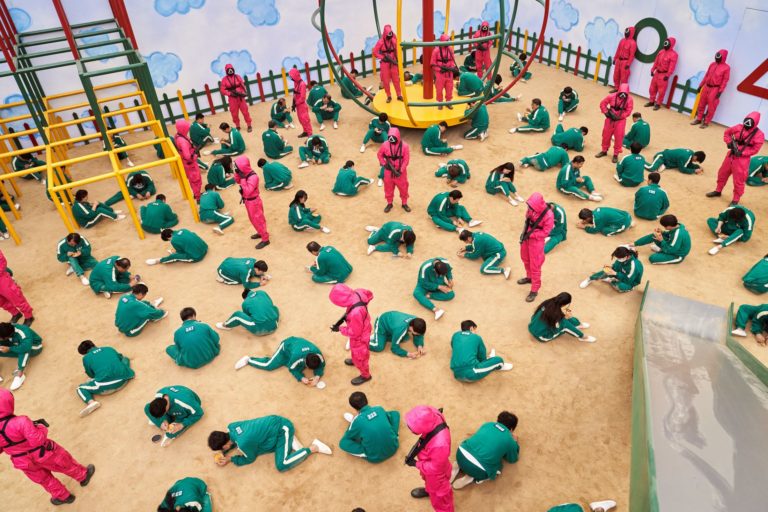
Gi-hun befriends a small group of people while fighting for his life, and their struggles often feel universal. Sufficient time and space are devoted to fleshing out all of the main characters through their words and actions, so viewers grow to be sympathetic to the heroes and maybe even some of the villains. They are all complicated people making impossible choices, and it’s easy for viewers to think about what they might do in the same situation.

The battle royale genre wouldn’t be as fun as it is without loads of action though, and Squid Game is very smart about how it portrays its violence. The games in the series are designed to continually keep competitors guessing about what skills will be needed next, and that keeps viewers guessing as well. Some games are extraordinarily violent with excitingly high body counts, but other games are very quiet with the deaths given a more somber tone. Expectations are continually subverted, keeping the interest in the next episode quite high. Squid Game does get quite gory at times, but the violence and blood accentuate the story rather than overpowering it.
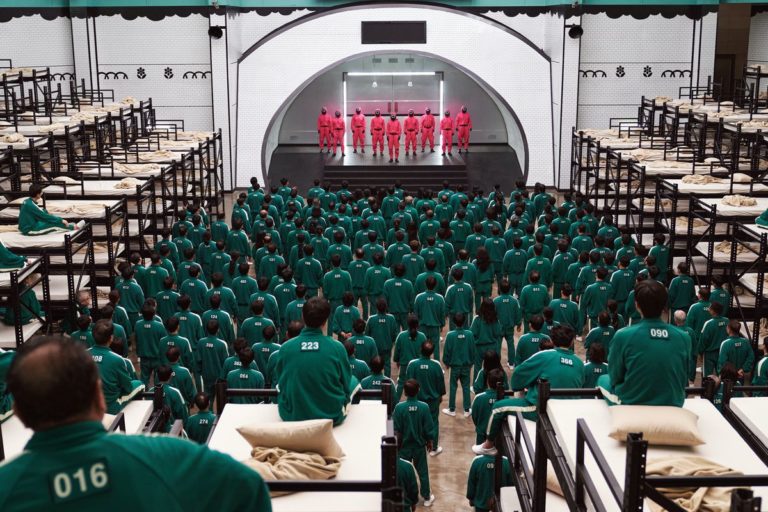
Squid Game also looks amazing. The locations away from the games can be gritty and grimy, using muted colors and lots of shadows. By contrast, the game areas are very colorful, using lots of pinks, yellows, blues, and whites with bright and harsh lighting. The production values are top-notch, making the universe these characters inhabit feel expansive and real. Great attention was paid to how the look of Squid Game affects viewers’ perception of tone, and it’s difficult to find any fault with how the show is put together.
Squid Game is exciting, heart-wrenching, and engaging for fans of character-driven thrillers in the vein of Battle Royale and The Hunger Games movies. Squid Game‘s story makes it compelling and relevant, and its relentless progression makes it an easy show to binge watch. The show is a crowd-pleaser with heart, and it’s no wonder it became as popular as it did.
Social/Themes Analysis
Like many popular South Korean movies and shows, Squid Game is given extra weight by incorporating real-world issues into its story. This section breaks down some of the most prevalent issues brought to the forefront in Squid Game. Fair warning: there will be many spoilers from here on, so stop reading, go watch the show, then come back if you want to remain spoiler-free.
Household Debt
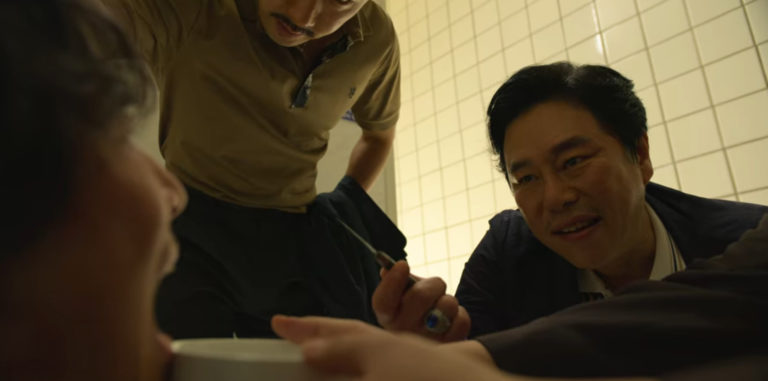
The driving force behind most of the competitors in Squid Game is the debt they are in. South Korea struggles with household debt, ranking as one of the countries with the highest household debt in the world. The competitors in Squid Game are technically given multiple opportunities to choose whether or not they want to participate, but just like in real life, crippling debt limits many realistic options.
Wealth Gap

Towards the end of the series, it is revealed that the host of the games is an absurdly rich man who put on the games so he and other people with too much money could have some amusement. The gigantic chasm of wealth between the competitors and the people funding the games helps illustrate the heartless nature of capitalism taken to extremes. It also reflects South Korea’s own wealth gap, something central to one of South Korea’s most widely acclaimed films ever, Parasite (2019).
Discrimination

When people are put into life or death situations, self-preservation can reveal prejudices that might not otherwise be seen. The characters surrounding Gi-hun come from diverse backgrounds, and many of them are subjected to discrimination at some point. Whether it’s gender, age, ethnicity, or nationality, the games reveal an ugly side of society while giving insight into the true characters of the people who do and don’t engage in such comments and actions.

These are just a few real-world issues supporting Squid Game‘s narrative. This is no way meant to say that these problems are specific only to South Korea. While some of the details may be specific (such as discrimination against North Korean defectors), these are all worldwide issues. All this illustrates is that Squid Game smartly tackles relevant social issues in a way that is accessible and even relatable to a worldwide audience.
The Games
The main draw for Squid Game initially is its elaborate and deadly series of games. Being based on children’s games, they are all easy to grasp even for people unfamiliar with them. That allows viewers to focus on the tension rather than be bogged down by a bunch of rules. Though most of the games have equivalents familiar to people outside of South Korea, some of the games have origins unique to the country. Here is a quick rundown of all six of the competition’s main games plus a bonus game played in the first episode.
1. Red Light, Green Light / The Mugunghwa Has Bloomed
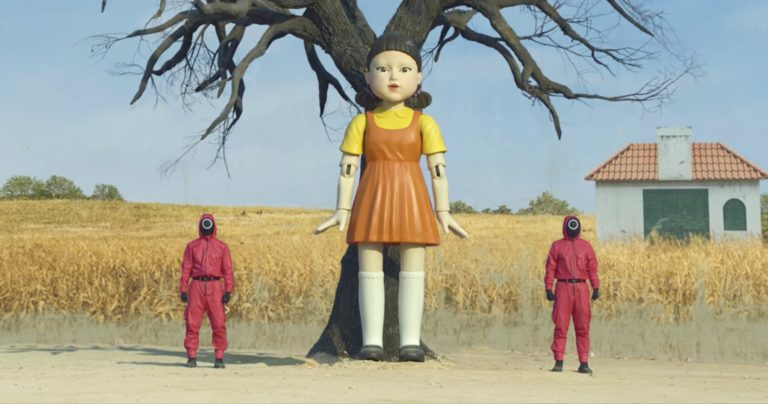
The subtitles on Netflix do not give a direct translation for this game, opting for a localization instead. The name of the game in South Korea translates to “The Mugunghwa Has Bloomed,” with “mugunghwa” being South Korea’s national flower (a hibiscus).
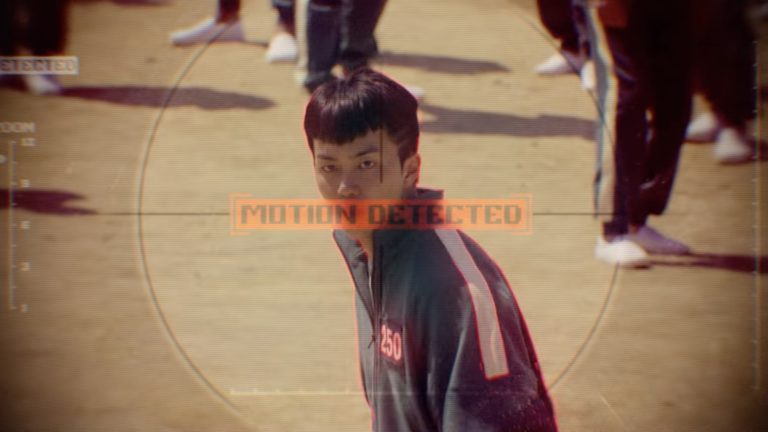
The game is essentially the same as Red Light, Green Light, but observant viewers will notice that the creepy robot girl in Squid Game is saying a single phrase rather than telling people to start and stop. The phrase, “the mugunghwa has bloomed,” must be said in full before the person who is “it” can turn around and eliminate anyone they see moving. The challenge is for “it” to say the phrase faster or slower to throw the players off. The game’s origins in South Korea are unknown, but it’s been suggested it was inspired by an almost identical game in Japan called “Daruma-san Ga Koronda.”
2. Honey Combs / Dalgona
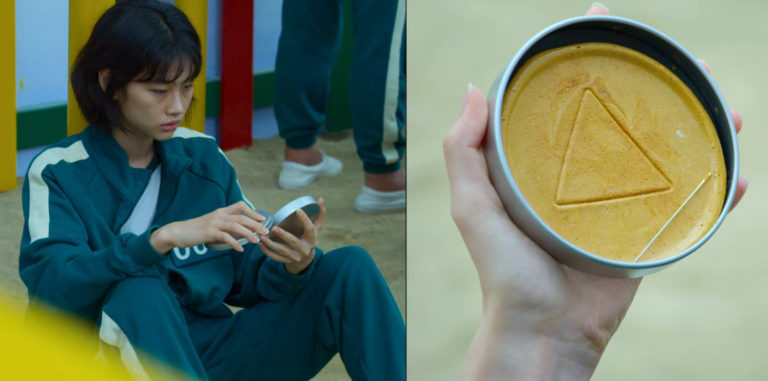
This is a childhood game unique to South Korea. The game features dalgona (also referred to as ppopgi), a South Korean sponge candy with shapes pressed into them. The thin, brittle candies were often made by street vendors who would challenge children to eat around the edges without breaking the shape in the center, sometimes rewarding them with more candy.
3. Tug of War / Juldarigi

While various forms of Tug of War exist throughout the world, the term for the game spoken by the characters in Squid Game is “Juldarigi.” In Korea, Juldarigi has its origins in folk customs and is traditionally a major part of festivals. The game provided a great chance to bring communities together through cooperation and the fact that everyone was encouraged to participate. Squid Game continues that tradition with Gi-hun’s group of outsiders coming together to beat a seemingly stronger team.
4. Marbles / Guseulchigi
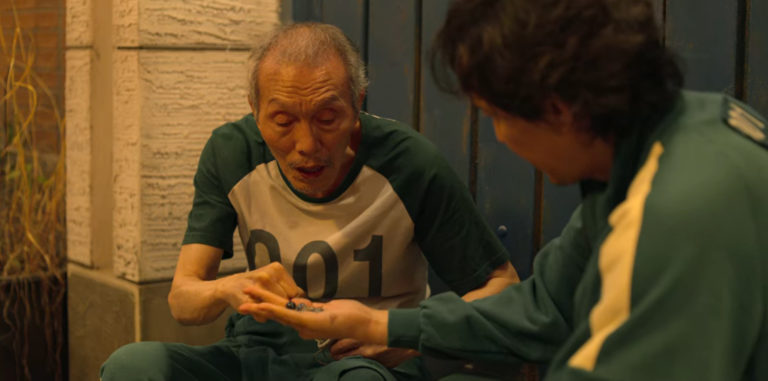
Just like versions of Tug of War are played around the world, many countries have games involving marbles. In Korea, marble games are called “Guseulchigi.” As seen in Squid Game, many different variations of marbles can be played. The variation shown most dramatically in Squid Game is Holjjang, a guessing game where players bet marbles by guessing if their opponent has an even or odd number of marbles in their hand. Guseulchigi used to be played frequently, with the use of glass marbles increasing the game’s popularity during the Japanese occupation of Korea throughout much of the first half of the 20th century.
5. Glass Stepping Stones

Searching for traditional origins for this game in South Korea came up short, but the Glass Stepping Stones game in Squid Game is remarkably similar to a challenge in the Japanese television show Takeshi’s Castle. The game, called “Dragon God Pond,” featured stepping stones in a shallow pond that competitors would try to run across. Like the breakable glass in Squid Game, some of the stones would collapse and cause competitors to fall. It’s possible Glass Stepping Stones was inspired by Takeshi’s Castle, but the South Korean ban on Japanese media at the time the show was airing in the 1980s makes it a longshot for being a nostalgic game in Korea. Even so, the setting for the game looks like a circus or a game show, so the possibility is there.
6. Squid Game / Ojingeo Nori
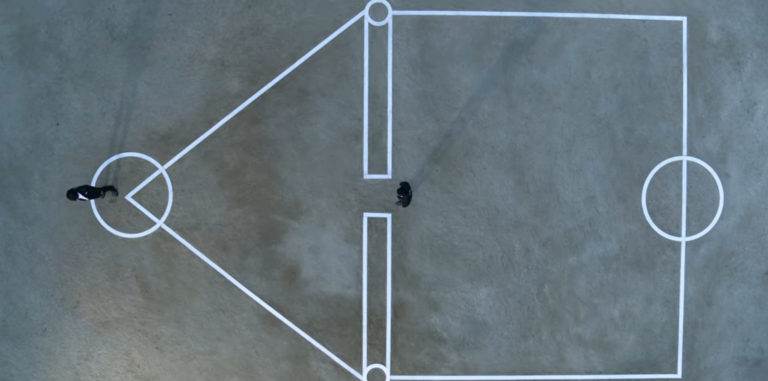
The final game in the series, and the game that gave the show its name, Squid Game, is indeed a real game. The Korean name for it is Ojingeo Nori, and the rules are the same as what is depicted on the show. Unlike the climactic one-on-one battle in Squid Game, the game is played with teams, but otherwise, the rules of hopping one foot until crossing the river and trying to push past defense to the top of the squid are the same.
Ddakji
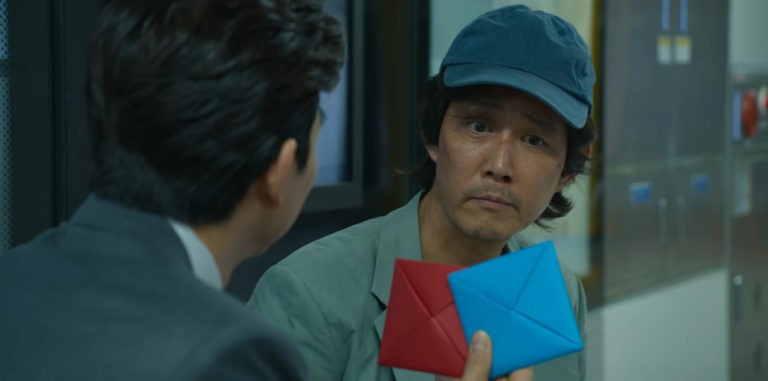
Although not an official part of the six deadly games, the game Gi-hun plays in the train station in the first episode is called Ddakji (or Ttakji). The game is played with folded paper squares, and, like marbles, many variations were possible. The version shown in Squid Game is called Neomgyeomeokgi. Players take turns slamming their ddakji onto their opponent’s, and if the ddakji on the ground is flipped over, the thrower takes it. The game is similar to Milk Caps or Pogs played in other countries.
Squid Game, Ending Explained
Episode nine of Squid Game, titled “One Lucky Day,” wraps up the season in what could be seen as an open-ended way, but many of the show’s narrative threads were brought to satisfying conclusions. Here is a look at what happened to all of the main characters, their motivations, and what it could mean for a second season.
The Players
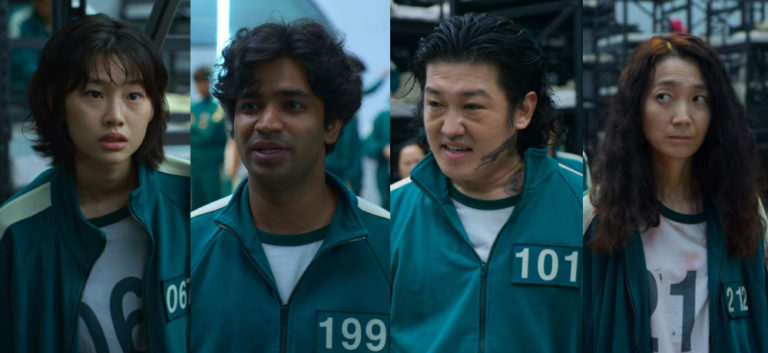
Prior to episode nine, most of the players in the games had been killed. Of the original 456 competitors, 14 left the games in episode two and didn’t return. Their fates are undetermined, but it can be assumed those 14 people just went back to their lives (even though it was stated by The Front Man that they were being watched). By the start of episode nine, only Gi-hun and his childhood friend Sang-woo are still competing. There was one other player who survived the games, but we’ll get to him in a minute. In total, 439 people died in the games or in the time between the games prior to episode nine.
Among the players, a few of them rose to prominence for viewers.
- Kang Sae-byeok – She is a North Korean defector who is killed in her bed by Sang-woo while suffering from potentially fatal injuries from a previous game. She left behind a younger brother in an orphanage.
- Abdul Ali – He is an immigrant from Pakistan who was killed after trusting Sang-woo only to be tricked by him during their game of marbles. He left behind a wife and baby.
- Jang Deok-su and Han Mi-nyeo – A gangster and single mother, respectively. They were both very manipulative throughout the games and died together during Glass Stepping Stones when Mi-nyeo, possibly sick of being manipulated by men like Deok-su, holds on to Deok-su as they crash through a pane of glass before falling to their deaths.
Sang-woo
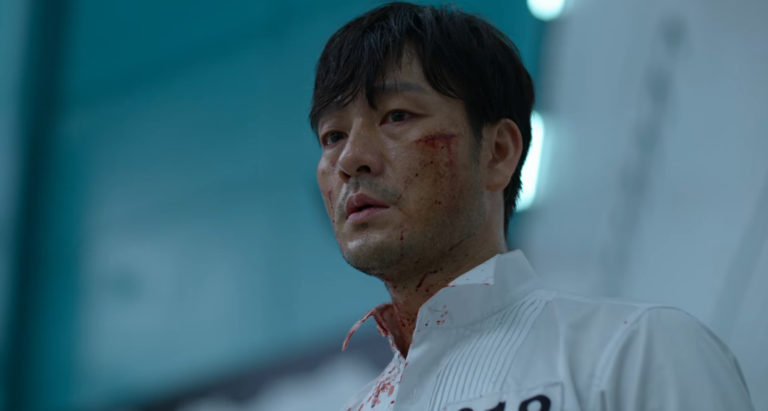
Episode nine, “One Lucky Day,” begins with Gi-hun and Sang-woo competing one-on-one in Squid Game, the final game. The scene echoes the very first scene of episode one where we saw them play Squid Game as children, but the stakes are astronomically higher now. Gi-hun comes out on top of a violent fight, and he is seconds away from winning the game when he stops. Knowing that Sang-woo will be killed if Gi-hun wins, Gi-hun decides to stop playing altogether.
Gi-hun is trying to use a rule established early in the series stating that players can stop the games if a majority of players vote for it. However, Sang-woo kills himself, taking the choice to stop the game away from Gi-hun. Gi-hun is distraught, but he won the game and all the money. Sang-woo’s motivation for his decision came when he saw Gi-hun offer his hand in aid. Sang-woo saw his own heartless actions throughout the games magnified through Gi-hun’s almost constant selflessness.
Sang-woo was calculating though, and he knew that by voting to end the games, neither he nor Gi-hun would receive any money. If the games are stopped, only those killed during the games would have money sent to their relatives. By killing himself, Sang-woo finally made his own selfless act by not only rewarding Gi-hun, but also by knowing that killing himself would allow Gi-hun to help Sang-woo’s mother.
Oh Il-nam
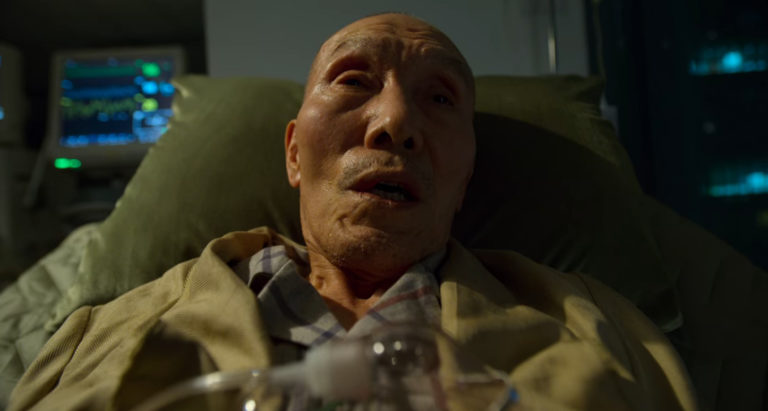
The elderly Oh Il-nam was thought to be killed in episode six. Il-nam was ostracized by most players due to his perceived weaknesses, but Gi-hun helped and looked out for the old man. The two men built a friendship, but Gi-hun showed a rare moment of weakness when he took advantage of Il-nam’s deteriorating mental state and tricked Il-nam into losing. Even though it was revealed that Il-nam caught on to Gi-hun before the end of the game, Il-nam still went along with it. Gi-hun walked away, and a gunshot was heard.
Though it wasn’t a complete surprise to many viewers that Il-nam didn’t die in the games (there was a shot from behind of an old man removing a V.I.P. mask in episode seven), it was a huge surprise to Gi-hun. A year after the games, Gi-hun is invited to a room in a high-rise building where he finds Il-nam alive but unwell. On his deathbed, Il-nam explains that having too much money is boring, and he and other rich people like him started the games to have some fun. Il-man participated in the games because he wanted to feel what it was like playing like he did as a child one last time before he died. Il-nam allowed Gi-hun to win their game of marbles because Il-nam truly enjoyed playing with Gi-hun.
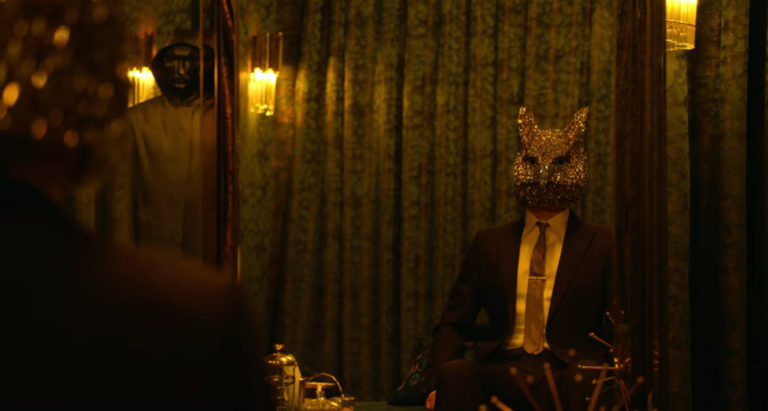
Il-nam plays one more game with Gi-hun, a bet to see if a homeless man outside the building will be helped before midnight or if he’ll be left to die in the freezing cold street. This whole final scene illustrates Il-nam’s cold-hearted view of society. Il-nam says that Gi-hun shouldn’t feel guilty about winning the games because he earned the money with hard work and luck, presumably equating the prize money to his and the V.I.P.’s own hard work and luck that got them to where they are.
As midnight draws near, it looks like the homeless man will not be saved. In the final minute, a passerby brings the police to help the homeless man, proving Il-nam wrong. Il-nam dies in that moment though, going to his grave with his ideals intact. The placement of the scene in a high-rise with Il-nam literally looking down at the homeless man visually illustrates how people like Il-nam see themselves as “above” most people in society.
The Front Man & Hwang Jun-ho

Jun-ho is a police officer searching for his brother who went missing at least a week prior to the start of the series. Jun-ho follows Gi-hun on his second trip into the games, and Jun-ho enters the game facility disguised as a pink-clad worker. Jun-ho is discovered, and as he attempts to escape with the evidence he’s collected, he is confronted by The Front Man. Jun-ho shoots The Front Man in the shoulder, and The Front Man reveals that he is Jun-ho’s missing brother Hwang In-ho. In-ho offers his brother a chance to live if he goes back to the game facility with him. Jun-ho refuses, and he is shot in the shoulder by his brother before falling off a cliff into the ocean.
The ultimate fate of Jun-ho is unknown as episode nine ends. His body was never shown, so it’s very possible he survived. His survival would raise some questions though. The final part of episode nine takes place a year later, and it’s clear the games are still happening. If Jun-ho survived, he might not have given his evidence to authorities in hopes of saving his brother on his own. Or it’s possible he did give his evidence to authorities, and there is a conspiracy that runs deeper than viewers were shown. With Squid Game having themes of capitalism run wild, it’s possible that people in power (i.e. with lots of money) are buying off any government agencies who might have the power to stop the games. Or maybe it’s like The Purge and the government sees the games as a necessary evil to reduce the number of people Il-nam referred to as human trash. No conclusions can be made, but it would be interesting to explore in future episodes.
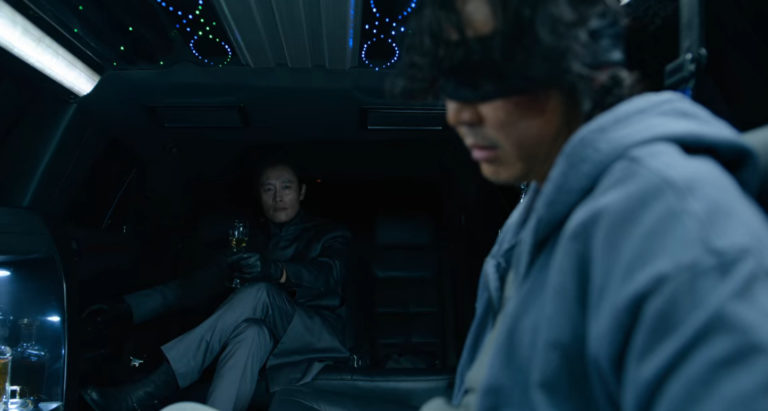
As for The Front Man, he is last seen in a limousine congratulating Gi-hun for his win. It’s unclear if In-ho has been acting as The Front Man for years (Jun-ho refers to his brother “dodging calls” for periods of time), but what is clear is that In-ho was a winner of previous game in 2015. Not all of the workers could be from previous games since the game started in 1988 and there is only one winner each year, but it’s possible that people in charge are recruited from past winners. That’s speculation, but it leads into the possible fate of Gi-hun.
Gi-hun
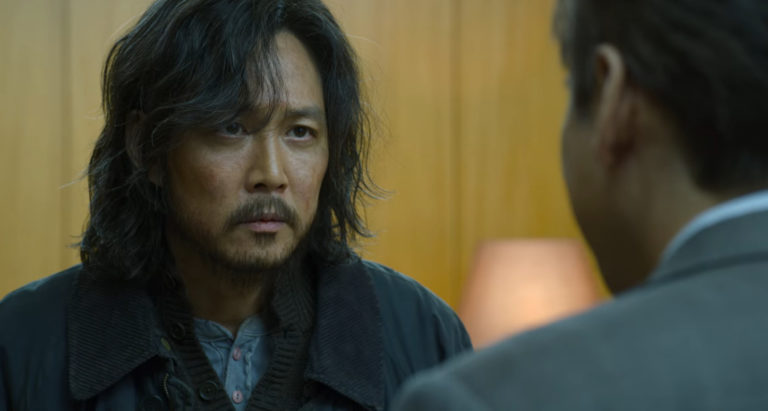
After Gi-hun wins the game, he goes back to his mother’s house to find that she passed away while he was gone. One year later, it’s revealed that Gi-hun hasn’t touched any of his prize money, and his life is even worse than before the games. Gi-hun never verbalizes it, but it’s a safe assumption that he feels guilty about the money being the result of so many people dying. Plus, he still feels guilty about tricking Il-nam in their game of marbles. Gi-hun did his best to not kill anyone and to actually help a lot of people, but in the end his efforts turned out to be for nothing. Everyone he grew to care about in the games died, and he couldn’t even save his mother with his winnings. So it’s not just guilt, to Gi-hun the money is worthless.
Gi-hun’s encounter with Il-man in the high-rise changes his outlook. By discovering that Il-nam lived and was a part of running the games, Gi-hun’s guilt turns to anger. He realizes that Il-hun was directly playing a game with Gi-hun’s life. During their game of marbles, there were no stakes for Il-nam. Win or lose, Il-nam knew that he would live, but he still pushed the game to the final few seconds before everyone still playing would be killed. Even though Il-nam genuinely enjoyed playing games with Gi-hun, he was still just toying with Gi-hun’s life for fun. This revelation assuages much of Gi-hun’s guilt, and it motivates him to use his blood money for something truly good.
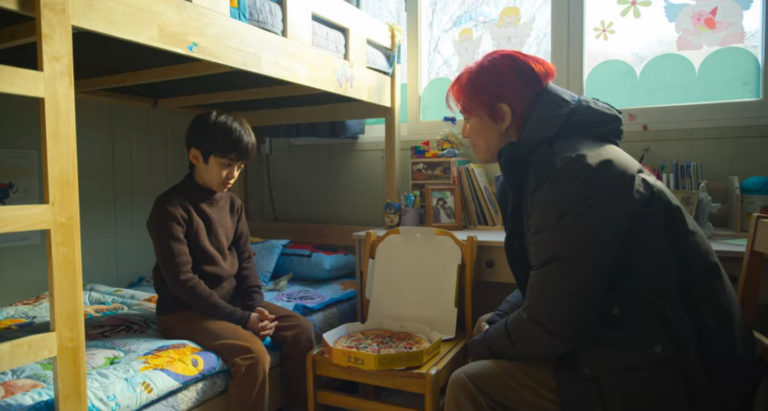
Gi-hun cleans himself up and gets a nice new haircut, and he sets about helping the people the games left behind. He finds Sae-byeok’s young brother and takes him to live with Sang-woo’s mother. He also gives the pair a suitcase full of money. Afterword, Gi-hun leaves to board a plane to the United States so he can finally be a part of his daughter’s life. On the way, he sees the same man that recruited him attempting to recruit someone else. Gi-hun calls the number on the man’s card, and knowing that the games are continuing, his conscience won’t allow him to leave. Gi-hun turns around and leaves the airport, seemingly intent on doing something to stop the games.
Some people have issues with how the final scene with Gi-hun plays out, saying that it makes him a bad father, but thinking he is a bad father is likely the reason he didn’t go to his daughter in the first place. In the year after winning the game, Gi-hun didn’t feel like he should be part of his daughter’s life because of his actions during the games. He tricked an old man into death in a game that his own life choices led him to. He also felt like everything he does ends it tragedy and pain, so he didn’t want to subject his daughter to that. His revelation about Il-hun changed everything since he knew he did the best he could by holding onto his humanity.
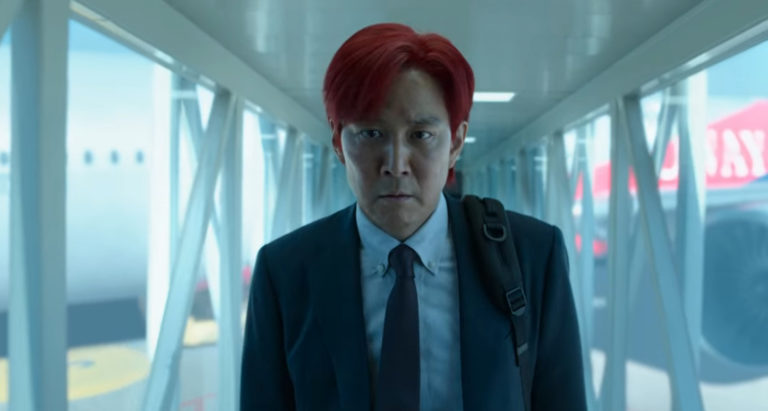
Also, Gi-hun knows that his daughter is being taken care of by his ex-wife and her husband. It’s not like his daughter is in a bad situation. Gi-hun could treat his daughter to an extravagant life with his money, but she is still living a good life without it. Gi-hun’s decision to turn away from the airplane is not about abandoning his daughter, it’s about sacrificing his own desires to help the people who need it the most. Gi-hun regained his heart, and he can’t stand by as people struggling to survive are treated like animals. Gi-hun’s character arc went from him being completely selfish and stealing from his own mother to gamble on horse races, to sacrificing the thing he wants most in life to help complete strangers. Truthfully, he probably also wants a bit of revenge.
As a winner of a game, will Gi-hun attempt to become a new Front Man and take the games down from within? Will he try to team up with Jun-ho if the policeman did survive his fall and gunshot wound (Jun-ho did approach Gi-hun outside of the games and within, so they already know each other)? Will he enter sneak back into the games (or be forced back into them) as a competitor and try to take it down that way? There’s really no way of knowing based on the first nine episodes. If the show were to end here, then it still has a satisfying ending based on hope. It’s like the end of The Matrix (1999) when Neo promises to show the people a world where anything is possible and flies away to start working on it. The series could have ended there and it still would have been great, just like episode nine of Squid Game.
Taking a deep dive into Squid Game illuminates one of the biggest reasons why it became such a sensation. Even if you didn’t know the show’s deeper significance while watching it, Squid Game is still an immensely entertaining thriller with characters you quickly grow to care about. After all, the show is about a man trying his best to retain his humanity at all costs. But knowing that a deeper significance exists gives the show amazing depth.
Korean viewers will undoubtedly get more out of the show than most people upon first viewing because of their understanding of the intricacies of the language and culture, but the universal language of struggle and survival has the potential to reach everyone. The best movies and shows around the world often invite viewers to explore the culture that produced them, and Squid Game is absolutely one of those shows.
